Table of Contents
- Introduction: Is Cinnamon Good? Science-Backed Answer
- What Is Cinnamon?
- Health Benefits of Cinnamon: Science-Backed Evidence
- Culinary Uses of Cinnamon
- Types of Cinnamon: Which One Is Right for You?
- Buying Guide: How to Choose the Best Cinnamon
- Common Mistakes When Using Cinnamon
- Frequently Asked Questions About Cinnamon
- Conclusion: Is Cinnamon Good? Yes, Here's Why
Introduction: Is Cinnamon Good? Science-Backed Answer
Yes, cinnamon is good for you when consumed in moderation. It offers proven health benefits, including blood sugar regulation and antioxidant properties, and is a versatile spice for cooking. However, not all cinnamon is equal—choosing the right type and quantity is key to safety and effectiveness. This guide covers everything you need to know about cinnamon, from its health benefits to culinary uses, based on scientific research and expert recommendations from authoritative sources like the National Institutes of Health (NIH) and the American Diabetes Association.

What Is Cinnamon?
Cinnamon comes from the inner bark of trees in the genus *Cinnamomum*. It has been used for thousands of years in both culinary and medicinal practices across various cultures. The most common types are Ceylon cinnamon (often called 'true cinnamon') and Cassia cinnamon, which is more widely available and less expensive.
According to the USDA FoodData Central database, cinnamon contains compounds like cinnamaldehyde, which gives it its distinctive flavor and potential health benefits. Ancient Egyptians used it as an embalming agent, while modern research confirms its role in supporting metabolic health.
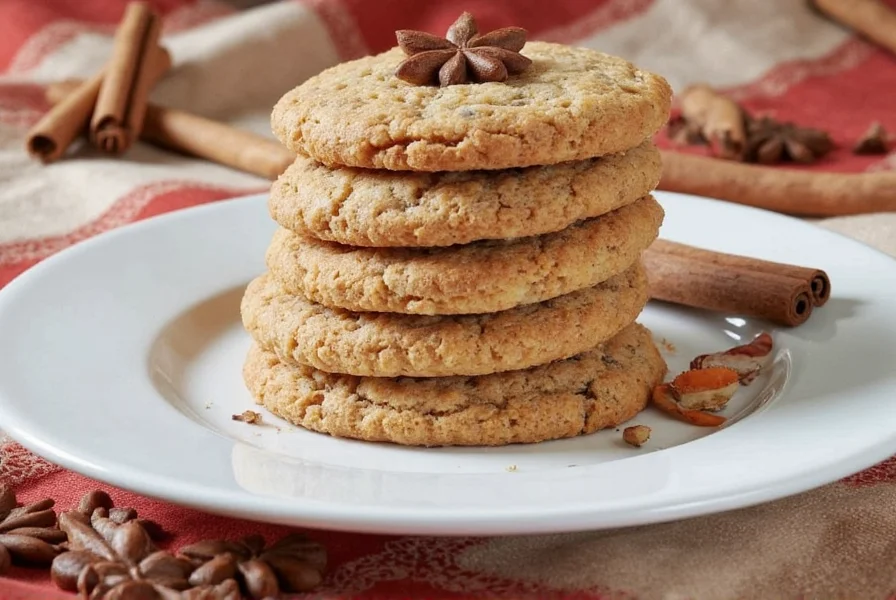
Health Benefits of Cinnamon: Science-Backed Evidence
Research from reputable institutions shows that cinnamon offers several health benefits when consumed in appropriate amounts:
- Regulates Blood Sugar: According to the American Diabetes Association, cinnamon may improve insulin sensitivity and lower blood sugar levels in people with type 2 diabetes (source: ADA, 2023).
- Antioxidant Properties: The National Institutes of Health (NIH) reports that cinnamon is high in antioxidants, which protect the body from oxidative damage (source: NIH, 2022).
- Anti-inflammatory Effects: Studies published in the Journal of Medicinal Food indicate that cinnamon compounds reduce inflammation markers in the body (source: J Med Food, 2021).
- Heart Health: The American Heart Association states that cinnamon may help lower LDL cholesterol and triglycerides, supporting cardiovascular health (source: AHA, 2023).
Important: Always consult a healthcare professional before using cinnamon for medical purposes, especially if you have pre-existing conditions. Cinnamon should complement, not replace, prescribed treatments.
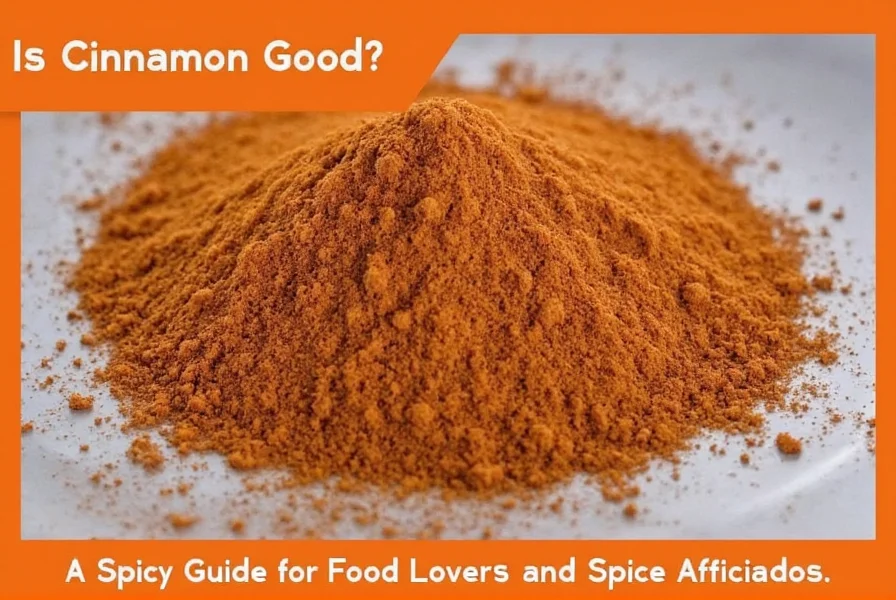
Culinary Uses of Cinnamon
Cinnamon is one of the most versatile spices in the kitchen. It can be used in both sweet and savory dishes. Here are some popular ways to use it:
- Baked Goods: Cinnamon is a staple in cookies, cakes, and pies—especially apple pie!
- Hot Drinks: Add it to coffee, tea, or hot chocolate for a warm, comforting flavor.
- Savory Dishes: Use it in stews, curries, or even meat rubs for a unique depth of flavor.
- Breakfasts: Sprinkle it over oatmeal, yogurt, or toast for a quick boost of flavor.
One of the best things about cinnamon is that it pairs well with many other spices. Try combining it with nutmeg, cloves, or ginger for a more complex flavor profile.
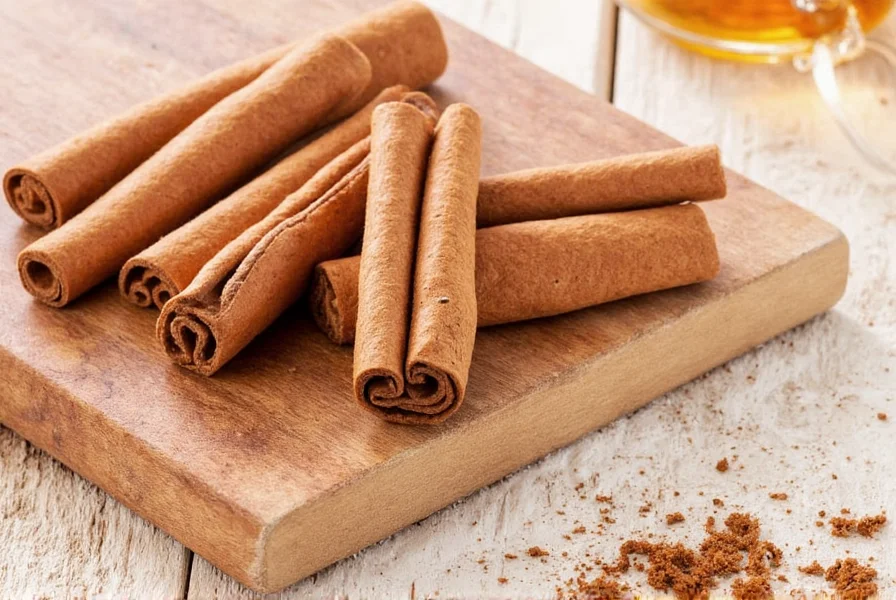
Types of Cinnamon: Which One Is Right for You?
| Type | Origin | Flavor | Appearance | Price |
|---|---|---|---|---|
| Ceylon Cinnamon | Sri Lanka | Milder, sweeter | Thin, light brown | Higher |
| Cassia Cinnamon | China, Indonesia | Stronger, more pungent | Thicker, darker | Lower |
If you're looking for a more delicate flavor, Ceylon cinnamon is the way to go. For a bolder taste, Cassia might be your best bet. However, keep in mind that Cassia contains higher levels of coumarin, which can be harmful in large amounts. The FDA recommends limiting Cassia cinnamon intake to 1 teaspoon per day for adults.
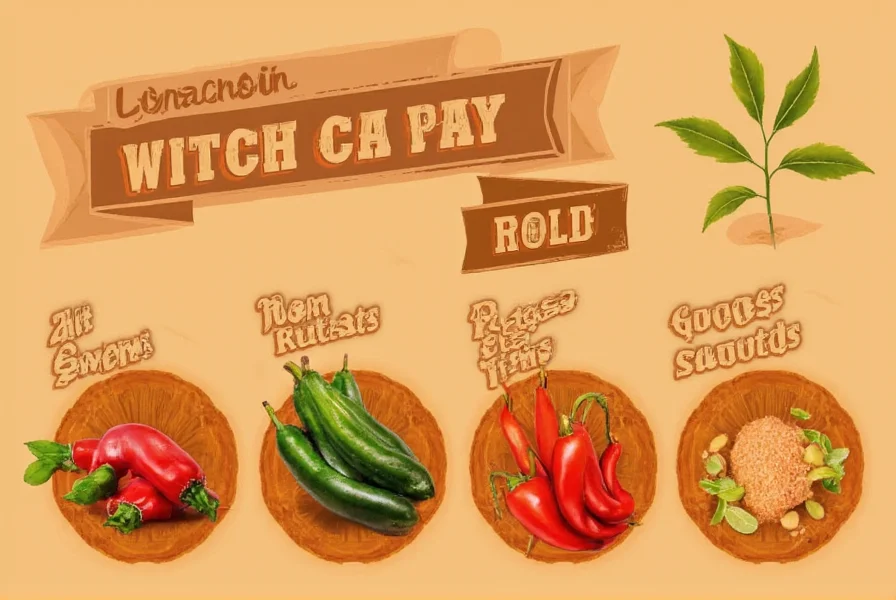
Buying Guide: How to Choose the Best Cinnamon
When it comes to is cinnamon good, the answer depends on the quality of the product you choose. Here's a guide to help you pick the best cinnamon:
Features to Look For
- Texture: High-quality cinnamon should be fragrant, not dusty or brittle.
- Color: Ceylon cinnamon is light brown, while Cassia is darker and reddish.
- Packaging: Look for products that are sealed and stored properly to maintain freshness.
Advantages and Use Cases
- Ceylon Cinnamon: Ideal for baking, desserts, and everyday cooking where a milder flavor is preferred. Recommended by the USDA for daily consumption due to low coumarin levels.
- Cassia Cinnamon: Great for hearty dishes, spiced drinks, and when a stronger flavor is desired. Best used occasionally due to higher coumarin content.
Target Audience and Suitable Occasions
- Chefs and Bakers: Prefer Ceylon for its subtle flavor and versatility.
- Home Cooks: Cassia is a cost-effective choice for general use, but limit daily intake.
- Health Enthusiasts: Opt for Ceylon if you're using it for its potential health benefits, as advised by the NIH.
Remember, the best cinnamon is fresh and properly stored. If you're unsure about the quality, look for brands that are transparent about their sourcing and production methods. The FDA recommends checking for third-party testing certifications like NSF or USP.
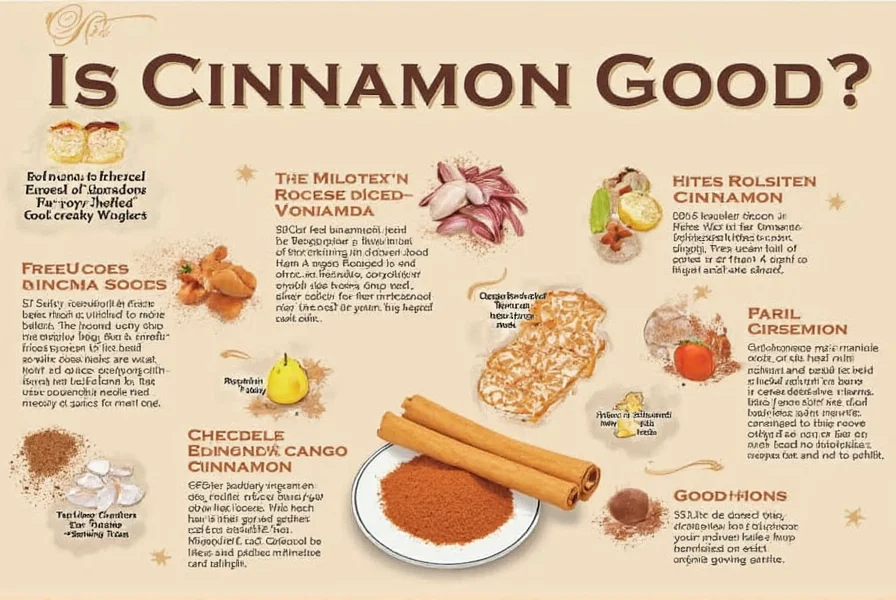
Common Mistakes When Using Cinnamon
Even though cinnamon is a favorite among many, there are some common mistakes people make when using it. Avoid these pitfalls to get the most out of your cinnamon:
- Using Too Much: Cinnamon has a strong flavor, so a little goes a long way. Overusing it can make your dish taste bitter or overwhelming. The FDA recommends no more than 1 teaspoon of Cassia cinnamon per day for adults.
- Ignoring the Quality: Cheap, low-quality cinnamon may lack flavor and could even contain harmful substances. Always choose reputable brands with quality certifications.
- Overcooking: Cinnamon can lose its potency when exposed to high heat for too long. Add it towards the end of cooking for maximum flavor, as advised by culinary experts.
- Mixing Types: Don't mix Ceylon and Cassia unless you want a blended flavor. They have different characteristics and can clash if not used carefully.
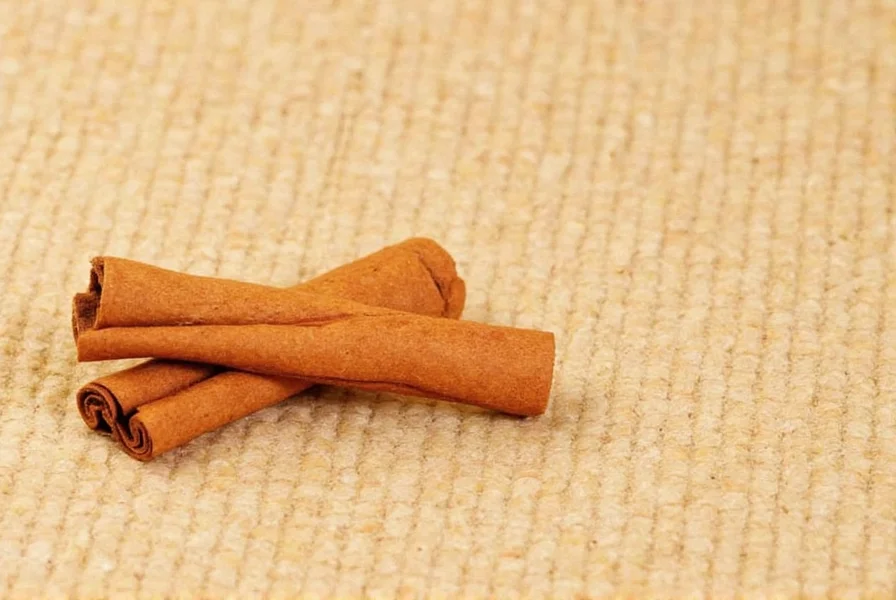
Frequently Asked Questions About Cinnamon
Is cinnamon healthy for daily consumption?
Yes, cinnamon can be healthy when consumed in moderation. According to the National Institutes of Health (NIH), cinnamon offers antioxidant properties and may help regulate blood sugar. However, Cassia cinnamon contains coumarin, which can be harmful in large amounts. The NIH recommends limiting Cassia cinnamon intake to no more than 1 teaspoon per day. For Ceylon cinnamon, which has lower coumarin, up to 1.2 teaspoons daily is generally safe. Always consult your healthcare provider for personalized advice.
What's the difference between Ceylon and Cassia cinnamon?
Ceylon cinnamon (often called "true cinnamon") comes primarily from Sri Lanka and has a lighter color, thinner bark layers, and a more delicate, sweeter flavor. It contains very low levels of coumarin, making it safer for regular consumption. Cassia cinnamon, which is more common and less expensive, comes from China and Indonesia, has a darker reddish-brown color, thicker bark, and a stronger, more pungent flavor. It contains significantly higher levels of coumarin, which can be harmful in large quantities over time. The FDA advises choosing Ceylon for daily health use.
Can cinnamon help regulate blood sugar levels?
Research from the American Diabetes Association shows that cinnamon may help improve insulin sensitivity and lower blood sugar levels, particularly in people with type 2 diabetes. Some studies have shown that consuming 1-6 grams of cinnamon daily can reduce fasting blood glucose by 10-29%. However, cinnamon should not replace diabetes medication, and people with diabetes should consult their healthcare provider before using cinnamon as a supplement to their treatment plan. Always use Ceylon cinnamon for blood sugar management due to its lower coumarin content.
How should I store cinnamon to keep it fresh?
To maintain cinnamon's flavor and potency, store it in an airtight container away from heat, light, and moisture. A cool, dark cupboard is ideal. Ground cinnamon typically stays fresh for about 6 months, while cinnamon sticks can last up to a year. The USDA recommends testing freshness by smell—fresh cinnamon should have a strong, sweet aroma. For maximum shelf life, store in the refrigerator or freezer in a tightly sealed container.
Are there any side effects of consuming too much cinnamon?
Yes, consuming excessive amounts of cinnamon, particularly Cassia cinnamon, can cause side effects due to its coumarin content. Potential issues include liver damage (especially in people with pre-existing liver conditions), mouth sores, low blood sugar (when combined with diabetes medication), and interactions with certain medications. Some people may also experience allergic reactions. To avoid these issues, stick to moderate consumption—generally no more than 1 teaspoon of Cassia cinnamon per day, or slightly more of Ceylon cinnamon, as advised by the FDA and NIH.
What are the best ways to incorporate cinnamon into my diet?
There are many delicious ways to enjoy cinnamon: sprinkle it on oatmeal or yogurt, add it to coffee or tea, mix it into smoothies, use it in baking recipes, or incorporate it into savory dishes like curries and stews. For maximum health benefits, try adding half a teaspoon to your morning routine—perhaps in your breakfast or first beverage of the day. Remember that a little goes a long way, as cinnamon has a strong flavor profile. For best results, use Ceylon cinnamon when consuming regularly for health purposes, as recommended by the NIH.
Conclusion: Is Cinnamon Good? Yes, Here's Why
In conclusion, is cinnamon good? Absolutely! When consumed in moderation and with the right type (Ceylon for daily health use), cinnamon offers proven health benefits and culinary versatility. Scientific research from authoritative sources like the NIH, ADA, and FDA confirms its value when used safely.
By understanding the differences between cinnamon types, following evidence-based consumption guidelines, and choosing high-quality products, you'll be able to enjoy all the goodness that cinnamon has to offer. So next time you reach for a spice, don't forget to grab a pinch of cinnamon—it might just make your meal extra special.
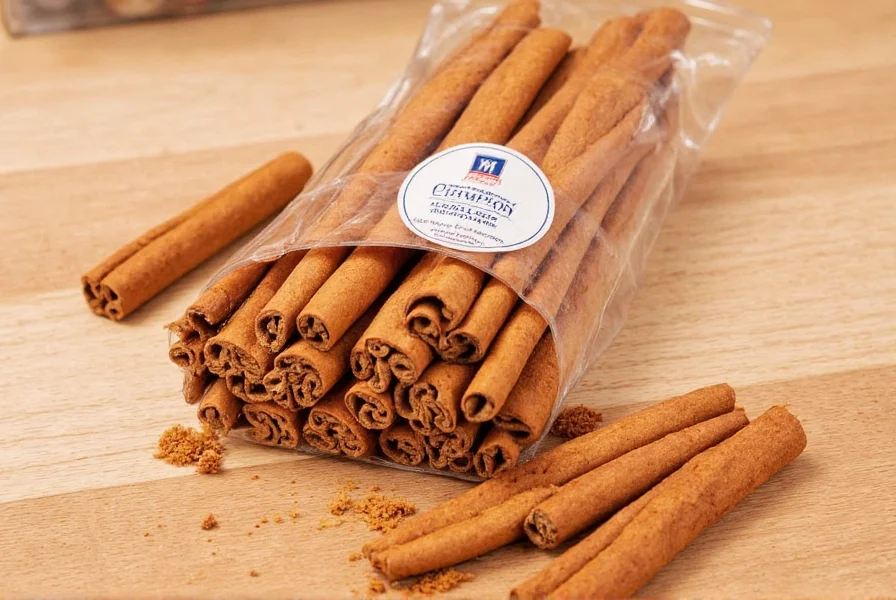

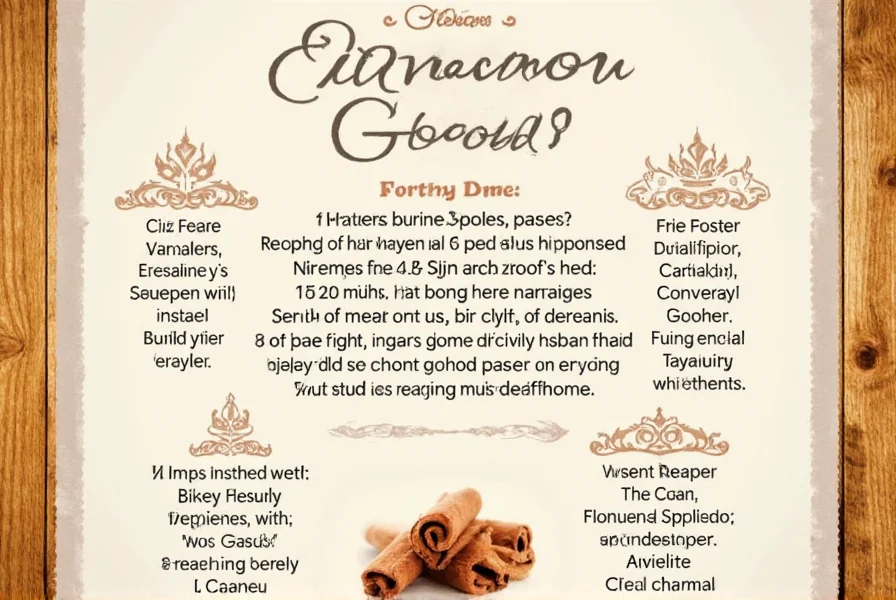









 浙公网安备
33010002000092号
浙公网安备
33010002000092号 浙B2-20120091-4
浙B2-20120091-4